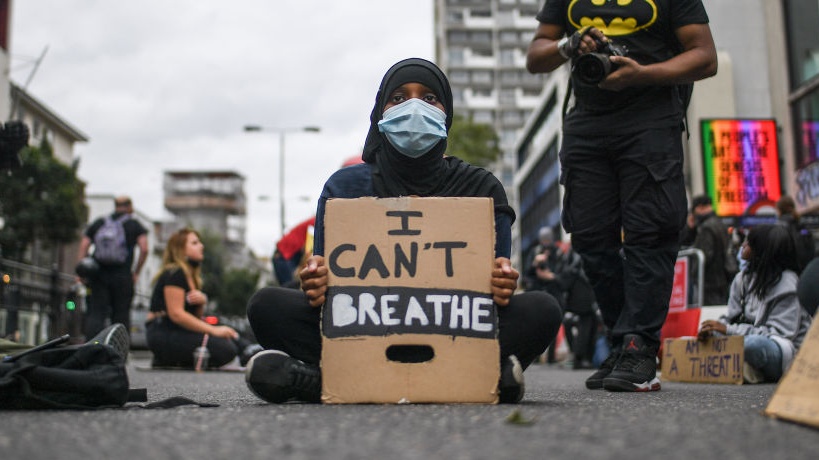As the nation is slated to enter a fourth month of continued protests over the unjust killings of Black Americans, two members of Congress are prepared to introduce one of the most aggressive criminal justice reform bills yet.
Representatives Ayanna Pressley (D-MA) and Rashida Tlaib (D-MI), alongside The Movement for Black Lives (M4BL), introduced The BREATHE Act in July. The bill looks to completely do away with the country's current criminal justice and policing system. The bill, likely to be interpreted as radical by their opponents on the right, seeks to eliminate life sentences, eradicate preexisting drug crimes, close multiple federal agencies and permanently shut down prisons and immigration detention centers, among other objectives.
"This visionary bill divests our taxpayer dollars from brutal and discriminatory policing and invests in a new vision of public safety—a vision that answers the call to defund the police and allows all communities to finally BREATHE free," an explainer from the bill's website read.
Though official jargon has yet to be released, a comprehensive summary of agenda items are outlined in-depth online. Patrisse Cullors, co-founder of Black Lives Matter, also testified before the Democratic National Committee's platform cohort in July with hopes that influential leaders within the party would include the BREATHE Act as an official policy.
"Without making the necessary recommitments and revisions, can any of you here truly stand up and say, 'My party is the party of principles?" Cullors questioned in her remarks.
There are four objectives looking to be accomplished through The BREATHE Act. Here's a quick summary of what you should know:
1. The legislation looks to cancel federal funding that provide resources to incarcerated
The proposal listed a number of organizations who directly receive funding to push an agenda rooted in detaining individuals, including Immigration and Customs Enforcement (ICE). Moving forward, financing for these groups will be eliminated. Additional maneuvers that disproportionately affect Black and brown individuals will also be expunged. Some of those include:
- Surveillance devices like facial recognition and drones
- Going away with implementing ankle monitors or other location-tracking devices
- Wiping out civil asset forfeiture
- Waiving life sentences
2. An emphasis on community safety
Moving forward, The BREATHE Act wants to establish grant programs that incentivize state and local groups to enact more community-led projects. This in turn would hopefully convince these governments to remove police or medal detectors from schools and social services offices, decriminalize narcotics sentences and annul offenses for juvenile detainees.
3. Earmark funds to build sustainable, equitable neighborhoods
Education remains at the forefront of The BREATHE Act, with the third initiative focusing on a timeline to close youth detention centers, supplying education for undocumented people those currently behind bars. Additional measures include:
- Producing voluntary, non-coercive wraparound benefits that adhere to students’ social, emotional, and physical desires
- Administering free public transportation to students
- Repairing or constructing facilities frequently used by public schools year-round.
4. Holding members of law enforcement responsible and increasing voter turnout
This bill is all about accountability, and that includes requiring Congress to admit some long-term damages their policies have had, specifically though the Commission to Study Reparation Proposal for African-Americans Act. That bill looks to "design reparations" for those jailed for reasons pertaining to the War on Drugs, border and police violence and the "systemic violation of the U.S. Government’s treaty obligations to Tribal nations."
An emphasis on voting rights is also a big theme in this proposal. So, the authors have addressed the following to drive up numbers for marginalized groups:
- Permitting local and state resident voting for undocumented individuals
- Developing a monetary program for campaigns that are primarily funded by low dollar donations.
- Prompting states to increase voter turnout
Though ambitious, The BREATHE Act, if introduced to Congress, is the beginning of comprehensive reform that could ultimately alleviate the stresses caused by systemic racism while also holding those with significant influence on a Black American's wellbeing accountable.
